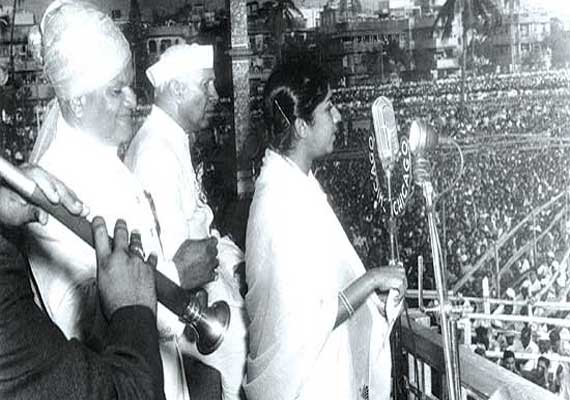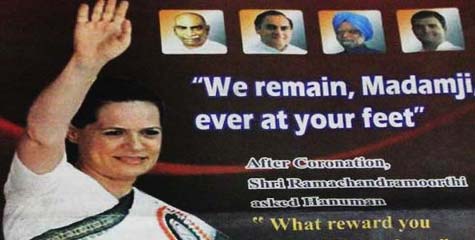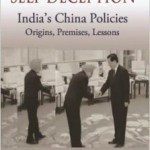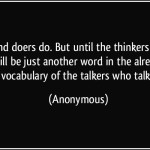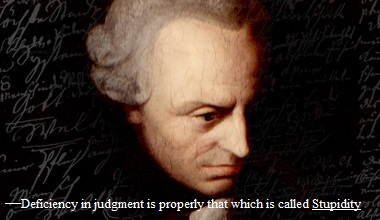
Continuing our Series on “Are We a Serious People?”, is our Fourth Installment: Origins of Indian Stupidity.
In our previous piece we touched on how Lack of Focus was the Origin for this (and Action the cure for it); however, in order to accomplish successful inoculation, further examination is required.
Now, I’ve always liked Origin stories. Some of my favorite movies are The Godfather Part II, Star Trek the Reboot (Star Wars Episode I not so much), and Batman Begins.
This is not so much because chronology is important to me–although I do like going in chronological order–but rather, because it is important to understand what makes a person tick. Why does he or she behave that way? What turns a nice guy looking to make his way in the world into a ruthlessly efficient Gangster? What makes a man dedicate himself to an ideal and beat criminals into a pulp night after night…
And…what makes so many Indians so consistently stupid, so much of the time, and on so many platforms( both online and off)? Part of what ACP does is to restore the self-respect of our people and their pride in culture. But culture is not always about feeling good or resting on laurels. It’s also about understanding what we do right, what we do wrong, and what needs to change so we can meet the challenges ahead. This piece is not about any individual Indian. Rather, it is about the consistent bad habits, hyperactive thought processes, and ad-hoc approach to life that modern Indians across the board have picked up. To cure the disease, however, diagnosis alone is not sufficient. The Etiology must also be conducted. So here we begin our study of Indian Stupidity’s Origins.
Origins of Indian Stupidity

- Attention Deficit Disorder
- Missing the Woods for the Trees
- Rote Memorization
- Status Obsession
- Sentimentality
- Sore-loserness
- Inability to Shut up
- Action vs Reaction
- Lack of Focus resulting from Loss of Culture
ADD
Yes, I understand the correct medical terminology is ADHD, but Attention Deficit Disorder is now common parlance, and perfectly illustrates our point about Indian hyperactivity. “Not all Indians suffer from this” you may say–but not so fast. Even the relatively sharp and well-informed easily fall back into this habit given the zeitgeist. Action is good, and is certainly better than talk. But Action without judgment…ehh…not so much. Refusal to think before acting leads to consequences like this.
As they say, the definition of “insanity is doing the same thing over and over again while expecting different results”. This is the problem with ADD Indians. They don’t spend time actually thinking about the wisdom of what they are doing or what their ancestors did and why. They just do for it’s own sake, because they feel like it. They don’t understand that it is better to think and evaluate the consequences of action and then act, and sometimes, better to do nothing at all.
Instead, when they are not aimlessly talking, they react every time there is a provocation and don’t think about whether they are equipped or have sufficient team support to counter this. They don’t think about whether the adversary they are facing maybe well organized, and they don’t think about whether what they are doing even makes sense. Worst of all, because they don’t do these things, when they act, it is not with overwhelming force. Thus they tire quickly in the face of a deluge of facts and logic. Because they haven’t done their homework (on both the subject and their adversary) they may even devolve into flurry of insults. All these things are signs of ADD. It is this proclivity for hyperactivity that lays the foundation for the stupidity of Indians.
As is done in the Armed Forces, discipline is the cure for this. This is because it permits emotion control. Superior to emotion control is emotional awareness (why am I feeling this, is it right to have this emotion, is this emotional action correct?). More on that later.
Missing the Woods for the Trees
Hyperactivity, in turn, contributes to missing the woods for the trees. This very common phrase is uncommonly or frankly very rarely understood by Indians. Indians love detail. They live in detail. They may even live for detail. Virtually every Indian middle class home drilled the importance of “GK” (general knowledge). Thus Indians are obsessed about learning trivia (and winning Spelling Bees). Learning this trivia and amassing as much knowledge as possible became equivalent to victory itself! “I know this statistic! I know that factoid! I memorized entire plays!“. Ok, but how does this help you solve your problem? How do you deploy this knowledge to achieve your aim?
To not see the woods for the trees also means obsessing over the puppet rather than the puppet master. If someone rubs our Modern Indians the wrong way, then they will completely fixate on that person, rather than ask whether he is merely a disposable instrument and whether the shadyantra goes higher up.
To not see the woods for the trees also means getting wrapped up in petty squabbles and letting them ruin otherwise sound alliances. Indians are notorious for this, and Andhras most of all. Disagreements happen, arguments take place, but have the good sense to contain them and not air out grievances (especially petty ones) in public. At the very least, don’t air them out at critical or foundational moments. This is what happens when people rote memorize rather than critically think. They live by assumptions rather than logic. They don’t prioritize.
Memorizing facts and figures without understanding the greater overall picture allows people to live in their nice and neat little fantasies. It just makes you feel good about your knowledge without solving your problem. The real world is about problem solving, not feeling good.
In over-emphasizing rote memorization of fact without understanding how all the pieces are related, or at least useful, our Modern Indians end up looking naive…even stupid.
Rote Memorization
Don’t get me wrong. Rote memorization per se, isn’t bad in and of itself. In fact, there are tremendous benefits to it. But Rote Memorization by itself cannot substitute for critical thinking. Critical thinking, or more specifically, Strategic Thinking, allows individuals to take the knowledge they’ve gained, and apply it effectively.
Unfortunately, too often among our Indians, we see this tendency to rely almost exclusively on received wisdom. Formulas, frameworks, and even whole texts are memorized, without taking the time to understand how the parts relate to each other. Information is merely regurgitated or frameworks applied as though they were one-size-fits all, rather than properly modifying them for their purpose. In effect, it’s the instinct of fitting a square peg into a round hole.
In any event, after reading a few books, getting a few degrees, finding a cushy job, our resident rote-memorizers believe they’ve found the key to the universe. Like salesmen, they peddle their single-serving solution, and combust into a paroxysm of pompous pronouncements if challenged. This is because what little knowledge they’ve acquired has in turn fed their ego, creating a false sense of status. He who is obsessed about status, cannot take it if his opinion is not taken, or taken seriously.
Status Obsession
Indians are obsessed with Status. “Who got into what school? Who got married first? Who drives what car? Who wears what clothes? Who has bigger house? Who has more money? Who can chant what mantra?”
From the moment they wake to the moment they sleep, Indians are driven by such thoughts. True, the notion of Keeping up with the Joneses is a common theme in many societies. The difference with Indians is the intensity of this competition. To paraphrase Sayre’s Law, “The status competition among the average Indian is high because the stakes are so low”.
What’s more, this fuels India’s credential culture and pursuit of false prestige. Degrees are equated to expertise and colleges with qualification. “Eh who are you to tell me, I went to IIT-IIM so I know what to do!” This in turn comes from Ahankar, False Ego, that our value or worth is determined by what we have, or what hoops we’ve jumped through rather than who we are.
While this ailment comes from materialism, it is germinated by the cult of Hero Worship in India. After all, the closer we are to our Hero, the more we can bask in his aura. This in turn leads to influence over others due to the reflected glory of other “IIT-IIM” graduates and the like. Correspondingly, if our hero of the moment fails to validate our sycophancy he may become an enemy.
So Indians, please stop this Hero-worship. It is alright to admire someone, it is good to be loyal to family/patrons, but personality-driven movements more often than not fizzle fast. Institution and Ideal driven revolutions are what stand the test of time. Stop obsessing about status and start thinking of societal needs. Heroes come and go. This is the natural order of the world. Worst of all, hero-worship leads to sycophancy premised on Sentimentality.
Sentimentality

Indians are suckers for sentiment. As we have said this over and over. A little flattery here, a song and dance there, and Indians easily become pawns in the hands of those who conspire against them.
Apologies again to our Tamilian friends, but I think the nature of state politics in TN is known to all–and as a well-wisher I do hope it changes–but we all know how a certain ideology has addled the common man there. Now, unlike Telugus, Tamilians at least have the wisdom to not engage in petty infighting as a regional passtime (there, I made it up to you guys). Nevertheless, excessive sentimentality leads to closed-mindedness, mob-mentality, brainless thinking, and feckless responses to problems. Sentiment is fine here and there to appreciate the beauty of life. But sentiment is not a solution.
This is not a uniquely South Indian phenomenon, though it might lead to its comical or even tragic extremes here due to film star worship. Congress supporters love to tell the story of how Nehru famously wept when Lata Mangeshkar sang “Ae Mere Watan ke Logon” after the 1962 War. But what’s the point?! Would it not have been better to have been prepared, not get swept up in Hindi-Chini Bhai-Bhai sentiment, outwit Mao who was looking provoke war, or at least win the war through proper planning?
Obsession with sentiment further compounds hero-worship. This is the origin of the slavish sycophancy that the West used to (and still does) mock Indians (and other “Asiatics”) for. I am increasingly of the opinion that this is not wholly without merit.
The cure for sycophancy is Self-Respect. The foundation for Self-respect is Leadership.
Leadership must be taught, but who teaches it? Oh yes, managers are trained to implement processes, nominal brahmins or kshatriyas by birth or colonial certification are taught to look down on others, but who teaches to lead? Therein lies the problem. Hierarchy obsessed hyperventilators who look only at pecking order and number of followers, not ability and merit, chase after passing fads and stars of the moment. False prestige rather than genuine logic and talent continues to be the driving motivations of various sections, even though dyed-in-the-wool Brahmin Kautilya himself plucked Chandragupta Maurya from relative insignificance to raise him to the throne. This is because the true Brahmana or Kshatriya is not swayed by sentiment or Moha, but by duty.
That is the danger of sentiment. Men of sentiment ultimately become Karnas, and “Men of Conscience” ultimately lead to Bhishmas. This brand of leadership ultimately leads to disasters

During the height of the UPA government, a Chinese person commented the above about India’s Army. It truly is an Army of Lions and Paramvir Chakras, but the politicians leading it historically have, more often than not, been donkeys.
The Roman General Scipio Africanus (who defeated Hannibal at Zama) once had his bravery questioned by a subordinate–Scipio retorted “my mother gave birth to a general, not a soldier”. Soldiers are taught to obey orders and managers to implement processes, but executives and generals are taught to lead. But if this is the sentiment of future generals today, how is leadership possible? The answer lies in establishing proper Thinking and proper Training. Without these things, “heroes” may fight very bravely but will die very quickly…
Inability to Shut up
Sentiment leads to over-animated and over-emotional behavior.
As we wrote previously, Indians are Talkers not Doers. This in turn means they don’t know the value of “Shut Up”. We touched on this point in our previous piece when we wrote that “Rather than analyzing what is being said, a continuous bout of verbal diarrhea is projected. Thus, to counter this stupidity, Indians first need to know the value of shutting up (no one does this better than the Chinese)”.
By Shutting up, they can then think through a situation. Hyperventilating achieves nothing. Panic leads to defeat. By thinking through the situation you can plan for what ever may happen if things go bad. Rather than reacting via instinct, you can act with intelligence. And if you lose, you can have the good sense to use your wits, and live to fight another day.
Sore-loserness
Indians are sore losers. That’s right, you heard me. This trait is so genetically ingrained that even our neighbor to the west reflects it (and they have much to be sore about).
Where does it come from? Many sources: Mummy-approved egos, inability to step out of comfort zones, reluctance to cleverly banter (vs idly talk) . But the root of it all is lack of emphasis on Team Sports. Indians are taught how to study as individuals, not cooperate as part of a team. When fighting as an individual, it’s zero-sum, winner-take-all, tear the other “basterd” down, even if I may need him tomorrow.
In contrast, team sports not only teaches you how to cooperate and win alongside others, but builds character as well . This is why I have always been a fan of field hockey over cricket. That may be sacrilege, even blasphemy, in a nation of Kircket obsessed Sachin-bhakts, but it’s time someone took a stand. Whatever Mr. Tendulkar’s accomplishments, they were individual. For India to truly grow as a team, it must start turning to sports figures like Dhyan Chand. This is why, despite my biological aversion to SRK, I appreciated his role (and for once, his acting) in Chak De! India.
Selfishness
Some may ask why Selfishness by itself isn’t treated as a prong. This is because there are some extremely selfish, but extremely smart people in the world as well. That is why the stakes of Indian Stupidity are so high. You can be stupid. You can be selfish. But you can’t be both. The stupid but unselfish person will at least take advice from the wise and orders from his superiors. But the selfishly stupid person thinks only of his “conscience”–usually a mask for sentiment–hence the critique of the conscientiously stupid. It is also why, in the end, selfishness may influence stupidity–but it is not the catalyst for it.
There is a famous quote about how there is no greater a uniting force in the world than greed. So like jackals, thieves and schemers are quick to join forces and cooperate, however temporarily, then fight over the plunder later.
Indians very often confuse action for reaction. They wait for an attack, and when it comes, they rely on instinct or [insert scripture sanctioned archaic custom here] to determine how to tackle their foe. But that is not action, that is reaction.
Action is the resulted of anticipating and thinking through your problem. Rather than merely running like a hamster in a wheel when the mood or need strikes, it means something else entirely.
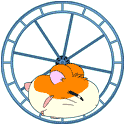

Action requires first being aware one’s self. It means understanding who you are, what you face, and what you may be feeling (this is called emotional awareness). By questioning the logic of your own emotions, you won’t be subject to impulses. Next, one should be aware of one’s surroundings, i.e. gather intelligence. It involves analyzing whether one has the capacity to take on the challenge. Third, if capacity is lacking, it must be either acquired through training or R&D or through the acquisition of allies. Finally, rather than jumping headlong into a conflict, it means understanding when and where conflict should be entered in to. To do all this things do all this things involves understanding strategy and tactics.
Markaz i jahalat: Crassly Stupid. Babur at the Battle of Khanua is reputed to have made this remark. It is not because he didn’t admire the manliness and courage of Rajputs–he did. Rather, he recognized that they fought bravely and chivalrously, but not sensibly and tactically. It is not mardangi that wins wars, but strategy and circumstances, which are ultimately influenced by leadership. The Mughals won Khanua either with cavalry flank attacks or concentrated use of cannon fire (i.e. tactics/strategy). The Rajputs lost it, with frontal assaults that forgot the flanks. Merely attacking your enemy when you see him is not the way to victory. While all true patriots honor the sacrifice of Rana Sanga and the Rajput Confederacy he assembled, they should have known that even the most powerful of bears must use his wits when fighting a pack of wolves.
Lack of Focus results from Loss of Culture

Ultimately, as we discussed in our preceding piece, Indian Stupidity originates from Lack of Focus, and Lack of Focus ultimately results from Loss of culture.
Culture teaches behavior, Culture teach etiquette, Culture teaches good conduct, Culture teaches history, Culture teaches classics, and above all, Culture teaches Wisdom. And as has been taught since the time of the ancients, Knowledge is Not Wisdom.
The words Maryada, Saujanya, Acara, and Dharma have all been discussed and explained in this cultural portal. Don’t just read to know or read to brag, read to understand, apply, and improvise. These concepts will help Indians to focus this energy, thinking, and action towards what matters. Culture helps us prioritize, so we are not subject to the whims of our sentiments and impulses and the passing fads of our peers. Many of our patriotic people genuinely mean well. However, due to loss of culture and lack of cultural knowledge, they have lost focus, and thus, have been unable to cope with the modern world. We hope to help change that.
Solutions to Indian Stupidity
- Learn your Culture
- Don’t just be a fanboy…learn to apply..and Improvise
- Always have a Plan B
- Read Widely and Observe Carefully
- Understand the Importance of Pragmatism
- Work as a team, Dummy
- Throw away the Defeatist Mentality
- Learn to Take Constructive Criticism…and to have your Criticism Criticized
- Think Before you Act
Learn Your Culture

This means more than just chest-thumping about theorized accomplishments of the past. It means understanding your heritage, who you are, where you came from, and why you family maintains certain customs, and why they matter. This is more than just about rites and rituals, but understanding the ideals and principles of your society that make life worth living, and your civilization worth protecting. That is the true value of Poetry, Philosophy, Art, Architecture, and Literature.
Don’t just be a Fanboy…Learn to Apply..and Improvise
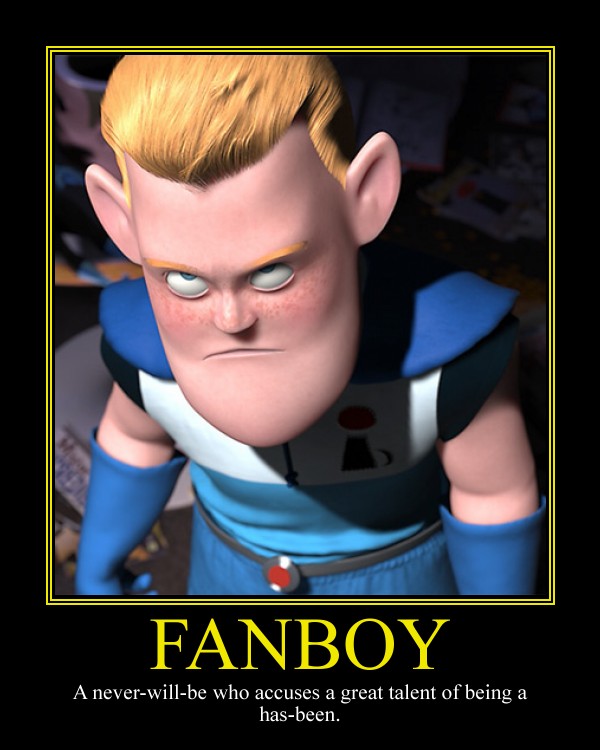
This prong is directly related to the point about how Indians are far too dependent on personality-driven movements, rather than institution or ideals. Gandhianism, Nehruvianism, Indira is India: All these notions fuel sentiment rather than sound thinking.
To build a strong country and protect it from external and internal threats, the focus of Indians must switch from their heroes/heroines of the moment to the common cause. They must not only apply what their teachers have created, but build upon the foundation and improvise as needed. Most importantly, they must also ask: If a leader should fall, who will take his place?
Always Have a Plan B
This is the danger of relying on Personality-drive movements. Great men fall, coincidences happen, stuff hits the fan. The question is, did you, and your society, have the good sense to think about a plan B? Naive Indians spend too much time studying the stars or relying on new friendships to shape their world view. Allies don’t shape interests, interests determine allies. And if things don’t work out they should have plan b. They need to understand that not every man God sends is a Godsend. Not every leader is an Avatar of Vishnu, and virtually no leader is infallible. Rather than sycophants, India needs lieutenants.
This also why one must not simply study the works of our hero or our Gurus. It is critical to read widely and observe carefully, both that which is favorable to us and that which is irritating to us.
Read Widely and Observe Carefully
When Trilochanapala, the last King of the Hindu Shahi dynasty was fighting in the hills of Himachal against Mahmud of Ghazni, he perched himself on the high ground and waited for reinforcements. He didn’t attack directly, but observed. The King of Kashmir sent reinforcements led by a favorite Captain, who had neither read widely, nor was familiar with the enemy. He haughtily laughed at Trilochanapala’s caution about the nature of Turk warfare and how it did not conform to the civilized rules of battle Indians were used to. However, our cocky commander went ahead and his unit was destroyed, while the Shahi Scion continued his fight with strategy and seriousness.
Now Trilochanapala did not ultimately succeed, because the odds were against him (sometimes that is the case), but at least he fought intelligently. And others, like King Vidhyadhara of Kalinjar (MP) were able to rollback and drive away Mahmud, because they fought with strategy and seriousness. Similarly, by observing carefully, doing the analysis, and striking when conditions were favorable (rather than rashly and blindly) the Marathas were able to defeat the Mughals in their 27 Year Liberation War.
That is why the greatest of commanders and leaders read widely. They don’t just read the flavor of the month or merely apply the time-worn custom, but read the situation and combine their knowledge with their observations. Indians must stop living on their opinions and assumptions and understanding the real world for what it really is. That means reading widely and studying your adversary. That is real intelligence.
Understand the Importance of Pragmatism
Idiot, loud mouth Indians need to stop behaving like children and start behaving like adults. This means putting your emotions and conceits to the side and focusing on what’s important and what works. This is called pragmatism. The most pragmatic people in the world today are the Chinese. Before them, the Americans. And most famously, it was the Romans. Pragmatism has no time for sentiment, it has no time for navel-gazing, and it has no time for obsolete custom. It plays to win and looks to what works.
Thus, Bharatiyas must learn to adapt what works from people around the world while keeping their essence: culture and heritage. As Virgil wrote: “It is right to learn, even from the enemy”. So start doing purva paksa and stop pontificating on how Indians shouldn’t do this or that. As Shivaji demonstrated, adopting Ganimi Kava (while observing the essentials of Dharma, i.e. respecting women, etc) where appropriate is the path to victory and civilizational defense.
That is why all the stupid idiots running around talking in bipolar terms of black and white, my side your side, enemy or friend are undoing their own cause without realizing it. They fail to see that we live in the Kali Age—and are deep in it (5116 years), and must therefore live in the grey. That means separating the essential from the ancillary. It means prioritizing principles we must absolutely keep while compromising on second or third order principles. Sri Krishna demonstrated this time and time again in the Mahabharata War, when small fibs were told in order to ensure that a woman’s honor was protected and vindicated.
Fundamentally, Dharma is about outcomes—not the same as fruits. Fruits only refer to benefits/rewards. Outcomes may not benefit us personally, but ultimately benefit society. Thus, the question before people is how to work for the best societal outcome.
This also means learning to work together.
Work as a Team, Dummy.
Indians are the absolute worst at working as a team. Each nimrod operates as a brainless puppet or thinks he’s an army of one, single-handedly equipped to defeat all the common adversaries. The moment he realizes either he, or his chosen hero of the moment can’t do it alone, despair overwhelms our fanboy. He must learn to work and win as a team. This means taking up team sports. This is the best antidote to the bipolarity of over-confident dummies vs defeatist complainers.
Throw away the Defeatist Mentality
When despair overwhelms our stupid idiots, then all is lost. The flagellation begins. He questions everything, from his fate, to his manhood, to everyone else. But that is not the way to face the challenges of life. Defeat doesn’t mean your adversary was right. It may just mean he was better prepared, or occasionally even that the cards were in his favor. And that is the point of this exercise. Between chest-thumping and self-flagellation is a veritable alphabet of options. The best is to study dispassionately what is happened, why it happened, and what can be done. Internalizing your enemies’ (and their traitor-accomplices’) insults and intellectually bankrupt conceits is not the way to victory or even self-improvement.
Your enemies don’t respect weakness, they respect only strength, and they show no mercy to those who beg. In fact, your pleading and defeatism only give them pleasure and confirm their lies, conceits, and invented superiority complexes. If your peers still aren’t convinced of the importance of soberly facing losses and doing triage, there is another solution.
In Telugu there is a saying: manishi k’okka maata, gedhu k’okka debba [a word for humans, a slap for buffalos]. Perhaps all Indians need a tight thappad across their faces to wake up and soberly face what they’re doing right and what they’re doing wrong. It also will help them gain the maturity to take, give, and have criticism rejected.
Learn to Take Constructive Criticism…and to have your Criticism Criticized
When a liaison from the US Navy was interviewed after a long tour with his Indian counterparts, he was asked for his thoughts on the culture. He said “Indians are prickly”, meaning they are too thin-skinned. Not everyone who praises you is your friend, not everyone who criticizes you is your enemy. This is why Immanuel Kant wrote that stupidity is deficiency in judgment. Judgment is knowing what to do, what not to do, and when to do. Knowledge is merely knowing how to do something. Judgment helps you apply it.
Judgment also means knowing how to take criticism and not to get outraged at every passing remark. So our Indians must have the judgment to learn how to handle criticism, and also to do it privately. No one likes a traitor, not even the enemy traitors side with. So don’t air dirty laundry in public, but do critique yourself and your society.
Think before you Act
We all make typos from time to time, but for God’s sakes, will you people take at least two seconds to proof a tweet or a blog post. Again, this is where over-emotional hyperactivity frequently undoes dharmic causes.
http://youtu.be/-mcUPY0RMdU
Knowledge without strategy is fecklessness, Strategy without knowledge is foolery. Action without aim is witlessness, Talk without action is buffoonery.
What hope does your society have when the good people do nothing? Doing something doesn’t mean becoming a superhero. Working for change doesn’t mean becoming a vigilante. And changing views doesn’t mean talking without listening. All it means is making a positive contribution, however small, to the civilization that gave you so much and that protects those whom you love.
To cure Indians of themselves, they must first know themselves, know what faces them, and figure out a way, however small (whether it’s cataloging their heritage, correcting misinterpretations, writing articles, writing books, or building institutions ), to comprehensively act and cooperate against common threats. But to become the men and women they are capable of being, stupidity inspired action is not the way. Strategy is. But for strategy to be implemented, they must train themselves with seriousness, and dedicate themselves to the ideal that unites them with everything they hold dear: their family, their state, their country, and their culture.
References:
- Kant, Immanuel. Critique of Pure Reason
- Sandhu.2002


